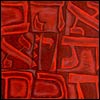In 1956, 12 young men in their early 20s stepped off an El Al flight on a very important mission. Handpicked by the Rebbe, Rabbi Menachem M. Schneerson, of righteous memory, they were sent to the central Israeli village of Kfar Chabad to console the local community following a terror attack that claimed the lives of one adult and five children, and wounded another 10.
During their time there, the men imparted strength and inspiration to a village, many of whose inhabitants had fled the pogroms of Russia, the atrocities of the Holocaust, or the hardships of post-war Europe for the safety and protection of Israel. The delegation provided a tangible link to the Rebbe’s instructions following the tragedy, that by continuing to build, the community would be consoled.
In the ensuing decades, the men went on to assume Jewish leadership roles in locations around the world, but a celebration last week at a New York yeshiva afforded some of them the opportunity to reunite and reminisce. Gathered around one of their own, Toronto Rabbinical Council president Rabbi Dovid Schochet, on occasion of his 80th birthday and his 55 years of self-sacrifice as a Chabad-Lubavitch emissary, they told an audience of all ages about their experiences strengthening Jewish life across the globe.
Rabbi Yehuda Krinsky, chairman of Merkos L’Inyonei Chinuch and Machne Israel, the educational and social service arms of Chabad-Lubavitch, has clear memories of those early days in Israel.
“We were like brothers,” he said of his time working alongside Schochet, who today also serves on the council of Chabad-Lubavitch rabbinical authorities.
Moving to the Toronto area involved several hardships for Schochet. After returning from Israel and getting married, he and his wife Bat Sheva followed the Rebbe’s directives and set up their home in the Downsview section of the city, where they quickly set about establishing a synagogue. Kosher milk and meat was impossible to come by locally, and the young couple had to ship in many supplies from New York.
More than two decades later and after having presided over a veritable boom in the entire city’s Jewish community, the Schochets packed their bags and moved north to the relatively undeveloped area of Thornhill. Taking a plot of land donated to the community by a local builder, they established the Chabad-Lubavitch Community Center there and spearheaded a mass migration north.
Today, the Jewish community in Thornhill comprises day schools, several synagogues, many kosher stores and other organizations. Hundreds of people celebrated Schochet’s birthday at the community center this past weekend.
Rabbi Faivel Rimler, who traveled and taught with Schochet in Israel and England, said that the Toronto Jewish community is successful because of Schochet’s leadership.
“The underlying success of Rabbi Schochet stems from his love of teaching and interacting with others,” said Rimler, a member of the National Committee for the Furtherance of Jewish Education. “Rabbi Schochet does everything with love.”
In the 55 years he has served as the head Chabad-Lubavitch emissary in Toronto and the chief rabbi of the Canadian Lubavitch community, Schochet has developed a reputation for going above and beyond the call of duty to help people in need, said his daughter, Batya Lisker of Chabad-Lubavitch Headquaters in New York.
“He helps everyone,” she said. “Jew, non-Jew, affiliated or unaffiliated – it doesn’t matter what their background is.”
Rabbi Moshe Kotlarsky, vice chairman of Merkos L’inyonei Chinuch, recalled that when he was a child, he used to visit Schochet with his siblings.
“He was an inspiration to us,” he said at last Thursday’s celebration. “He was an example to the future generation of people who went out to [strengthen] Judaism under the directives of the Rebbe.”

Schochet, an expert in Jewish law and its many practical applications, ordains rabbis from around the world.
“He has a special international line,” detailed his daughter. “Day and night, he gives his time to students and rabbis who call him regarding questions on Jewish law.”
In order to accommodate distance learners, Schochet regularly tests students from as far as South Africa, Israel and Panama via Skype. Prior to the celebration in New York, seven students from an online rabbinical program travelled there to be ordained by the scholar.
“It is our hope that you are able to test young men for years to come,” newly ordained Rabbi Aaron Fishbein told Schochet.
“According to Jewish tradition, true strength begins at the age of 80,” remarked Schochet’s grandson, Dov Yehuda Lisker. “At the age of 80, people are not limited by their physicality. Through connecting to G‑d, they are able to transcend their physical limitations. My grandfather, who has effected four generations of youth, is the epitome of strength.”
For his part, Schochet told the guests that one must always move forward.
“It feels very uplifting to relive past years,” he explained. “When you look back to where you have come from, it gives you direction for the future.”
As the celebration came to a close, the men formed a quorum for the evening prayer service. Schochet stood at the podium to lead the group in prayer.
“Watching my grandfather at the front of the congregation reminded me of looking up at him as he prayed at the Toronto podium when I was a child,” said Mimi Feller. “Seeing him pray tonight brought back good memories. It is something I will never forget.”





Join the Discussion